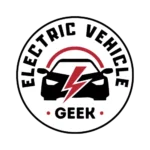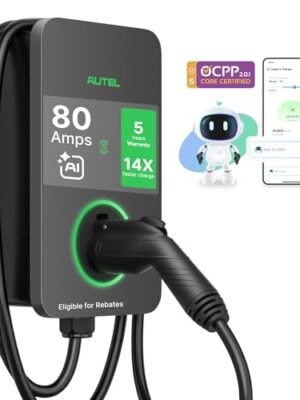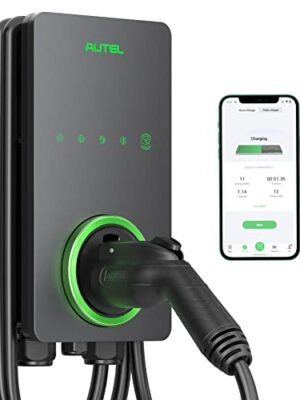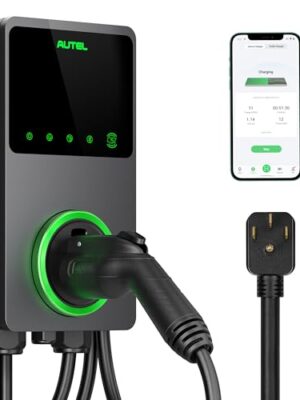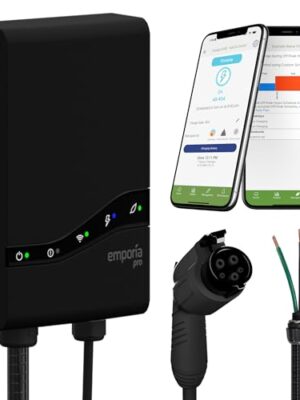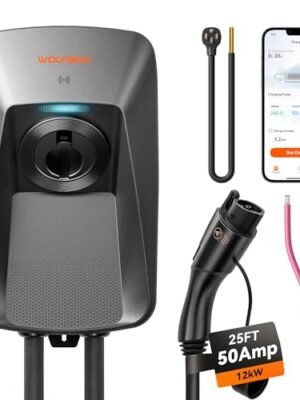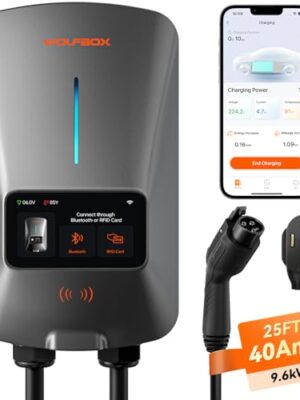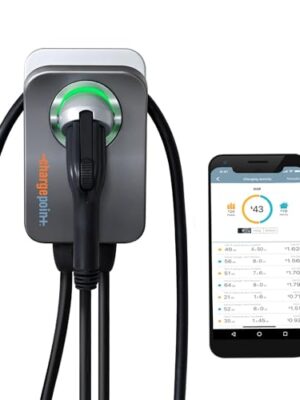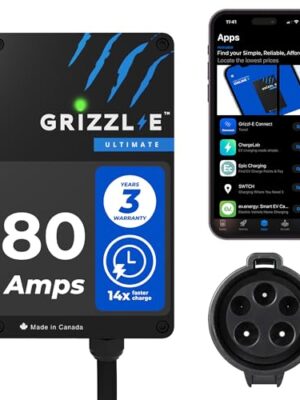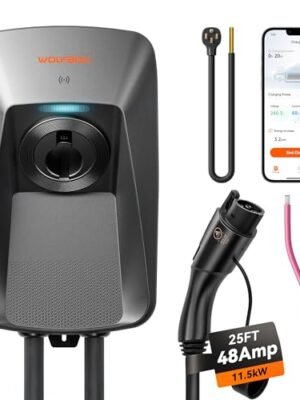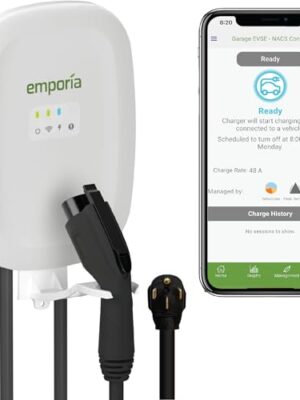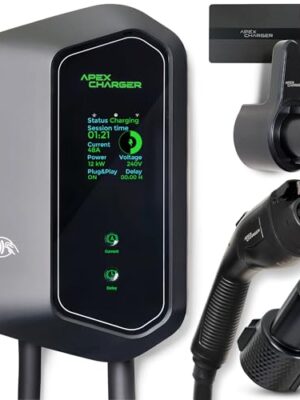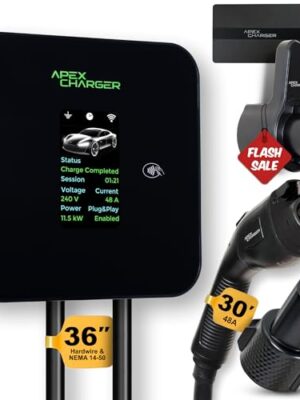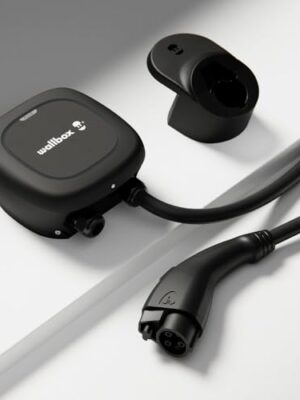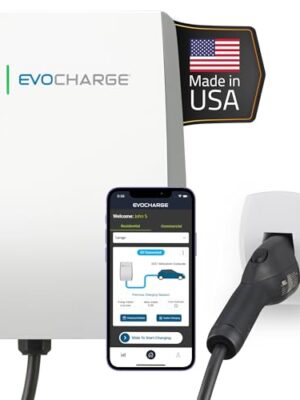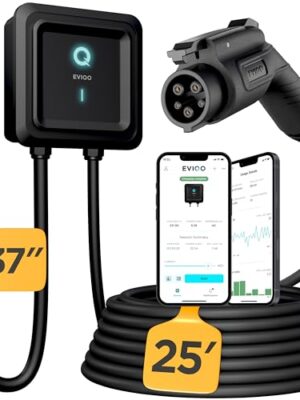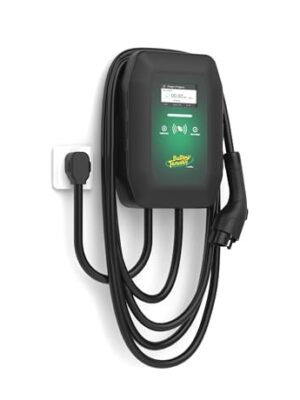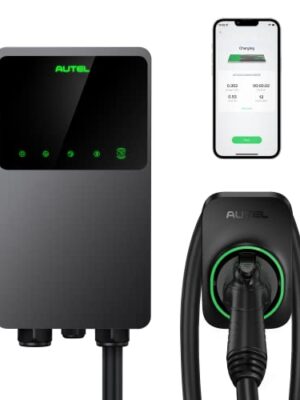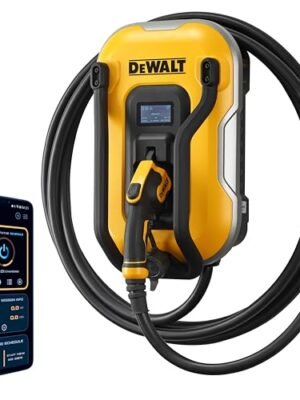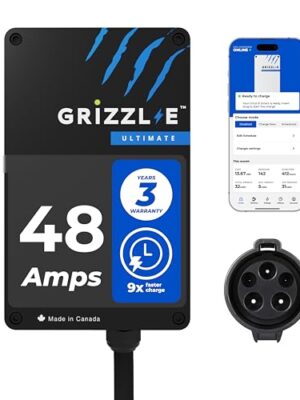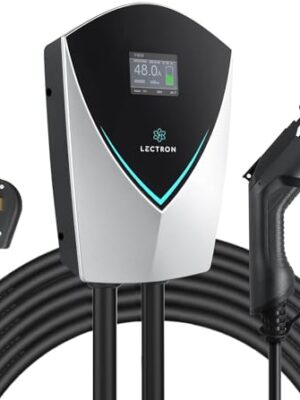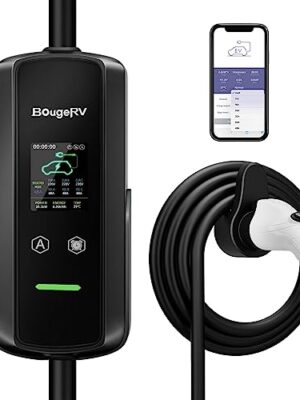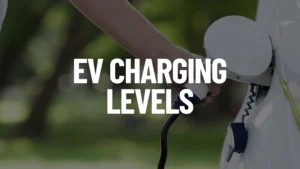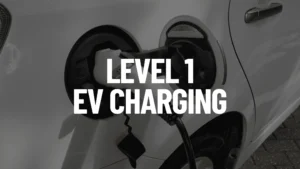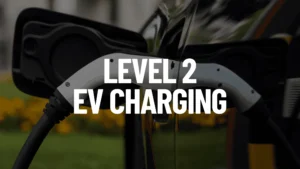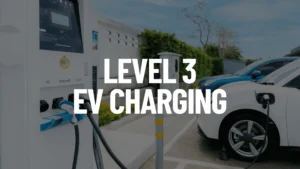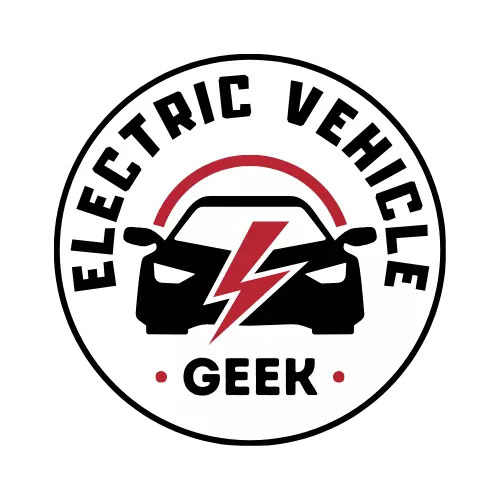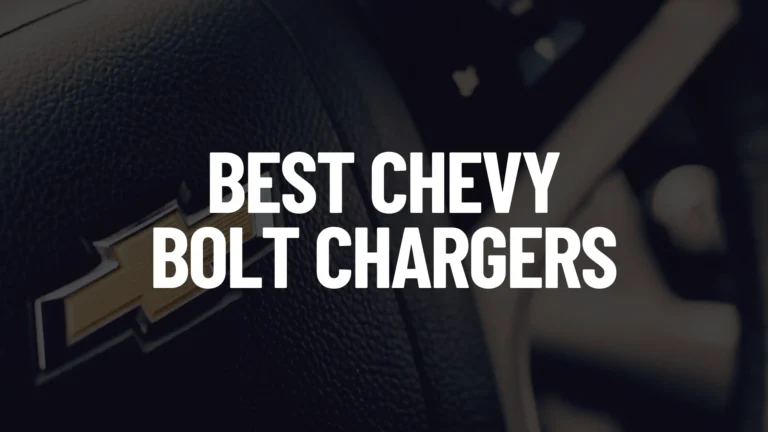
Supported by you via insider access, and when you purchase through links on our site, we may earn an affiliate commission. See our Affiliate Disclosure.
Chevrolet Charging Hub
Get trusted charger reviews, setup tips, and install advice for charging Chevrolet EVs like the Bolt EV, Bolt EUV, Blazer EV, and Silverado EV.
Best Chevrolet Home Charger
-
 Best Picks By
James Ndungu
Best Picks By
James Ndungu
- last updated July 25, 2025
Expert-reviewed Chevrolet home chargers we recommend for home charging the Bolt EV, Bolt EUV, Blazer EV, and Silverado EV. Each charger features a J1772 connector and delivers up to 11 kW AC (the maximum the onboard chargers in these Chevys can handle), making them a fast, safe, and reliable upgrade or replacement for the standard OEM GM Chevy home EV charger.
Use the “Compare” button on each product to select multiple chargers, then click the ⚖️ scale icon to see a full side-by-side comparison.
2025 Chevy Bolt EV
The 2025 Chevy Bolt EV is an all-electric compact car, featuring a 65 kWh usable battery capacity. It boasts an estimated range of around 300 miles (480 km) and utilizes an 11 kW onboard AC charging module.
The Chevy Bolt EV uses a SAE J1772 charging port for AC Level 1 and Level 2 charging and a CCS Combo 1 port for DC fast charging in North America. In global markets, it typically uses a Type 2 charging port for AC and a CCS Combo 2 for DC fast charging.
2025 Chevy Bolt EV Home Charging Options
The Bolt EV supports AC Level 1 charging (120V in North America), which provides a slow charge suitable for overnight top-ups. For faster home charging, it supports AC Level 2 charging (240V in North America, up to 11 kW), delivering approximately 25-29 miles (40-47 km) of range per hour, allowing for a full charge in about 9 hours.
2025 Chevy Bolt EV Public Charging Options
The Bolt EV is equipped with DC fast charging capability, allowing for a maximum rate of approximately 55 kW. This enables adding up to 95 miles (153 km) of range in the first 30 minutes of charging. Public charging networks offer a variety of Level 2 and DC fast charging stations. Chevrolet also provides access to over 250,000 chargers in North America, including Tesla Superchargers via an adapter.
2025 Chevy Bolt EUV
The 2025 Chevy Bolt EUV (Electric Utility Vehicle) is an all-electric compact SUV that shares its platform and battery technology with the Bolt EV. It comes with a 65 kWh usable battery and offers an EPA-estimated combined range of 247 miles (398 km). It features an 11 kW onboard AC charging module.
The Chevy Bolt EUV uses a SAE J1772 charging port for AC Level 1 and Level 2 charging and a CCS Combo 1 port for DC fast charging in North America. In global markets, it typically uses a Type 2 charging port for AC and a CCS Combo 2 for DC fast charging.
2025 Chevy Bolt EUV Home Charging Options
Similar to the Bolt EV, the Bolt EUV supports AC Level 1 charging (120V in North America), providing a slow charge. For more efficient home charging, it supports AC Level 2 charging (240V in North America, up to 11 kW), which can fully charge the vehicle in about 9 hours. A portable AC EVSE is included, capable of both Level 1 (8 or 12 amps) and Level 2 (32 amps) charging.
2025 Chevy Bolt EUV Public Charging Options
The Bolt EUV comes standard with DC fast charging, supporting a maximum rate of 55 kW. This allows for adding significant range quickly at public fast-charging stations, with up to 95 miles (153 km) in the first 30 minutes. Public Level 2 chargers are also widely available.
2025 Chevy Blazer EV
The 2025 Chevy Blazer EV is an all-electric mid-size SUV built on GM’s Ultium platform. Battery capacities vary by trim, with some models offering an 85 kWh or 102 kWh usable battery. EPA-estimated range varies from 283 miles (455 km) to 334 miles (538 km) depending on the configuration (FWD, RWD, or AWD). It features an 11.5 kW onboard AC charging module.
The Chevy Blazer EV uses a SAE J1772 charging port for AC Level 1 and Level 2 charging and a CCS Combo 1 port for DC fast charging in North America.
2025 Chevy Blazer EV Home Charging Options
The Blazer EV supports AC Level 1 charging (120V) for basic charging. For faster home charging, it supports AC Level 2 charging (240V, up to 11.5 kW), which can provide approximately 25-30 miles (40-48 km) of range per hour, allowing for a full charge in around 8-10 hours depending on battery size.
2025 Chevy Blazer EV Public Charging Options
For rapid charging, the Blazer EV supports DC fast charging at up to 190 kW. This enables adding about 78 miles (125 km) of range in just 10 minutes. Public charging networks offer a wide array of DC fast charging and Level 2 stations.
2025 Chevy Silverado EV
The 2025 Chevy Silverado EV is an all-electric full-size pickup truck, also built on the Ultium platform. It offers various battery options, with estimated ranges from 282 miles (454 km) to an impressive 492 miles (792 km) for the max-range battery. It is equipped with an 11.5 kW onboard AC charging module.
The Chevy Silverado EV uses a SAE J1772 charging port for AC Level 1 and Level 2 charging and a CCS Combo 1 port for DC fast charging in North America.
2025 Chevy Silverado EV Home Charging Options
The Silverado EV supports AC Level 1 charging (120V) for basic charging needs. For faster home charging, it supports AC Level 2 charging (240V, up to 11.5 kW), which is recommended for daily use and can provide a full charge in approximately 8-10 hours.
2025 Chevy Silverado EV Public Charging Options
The Silverado EV boasts ultra-rapid DC fast charging capability at up to 350 kW. This allows for a significant range replenishment, with approximately 100 miles (160 km) of range added in just 10 minutes at compatible public charging stations. Public Level 2 charging options are also available for less urgent charging needs.
Chevy Charging Guides

Choose the right charging option for your Chevy EV. Here’s a quick guide to Level 1, Level 2, and Level 3 (DC Fast) charging for Chevy electric models like the Bolt EV, Bolt EUV, Blazer EV, and Silverado EV.
Very slow, uses standard wall outlet, best for overnight top-ups or emergencies. Adds minimal range per hour.
Faster home and public AC charging. Ideal for daily use; full charge overnight. Requires dedicated wallbox installation.
This is the fastest way to charge and is primarily found at public charging stations along major highways and in urban centers.
Chevrolet Charging Hub

Chevrolet is one of America’s most iconic automotive brands, founded in 1911 and headquartered in Detroit, Michigan. As part of General Motors, Chevrolet has a long history of building vehicles for everyday American drivers. Today, the brand is one of the most aggressive players in the transition to electric vehicles, with a rapidly expanding EV lineup.
The Chevrolet Bolt EV and Bolt EUV were among the most affordable long-range electric vehicles available in the American market. Both models offer over 200 miles of range on a single charge and were popular choices for budget-conscious EV buyers. While GM paused Bolt production briefly, the model has returned with a redesigned version.
Chevrolet’s EV lineup has grown significantly with the Blazer EV and Equinox EV, two electric crossovers built on GM’s Ultium platform. These vehicles offer impressive range, modern technology, and competitive pricing. The Silverado EV brings full-size electric truck capability to the Chevrolet lineup, targeting work and lifestyle truck buyers.
Charging Chevrolet EVs at home is most efficient with a Level 2 charger. The Bolt EV and EUV can accept up to 7.2 kW of AC charging, while Ultium-based vehicles like the Blazer EV and Silverado EV support faster home charging speeds. A 48-amp Level 2 charger is an excellent choice for maximizing charging speed at home.
Chevrolet EVs use the J1772 connector for Level 2 home charging and CCS for DC fast charging. GM has also announced plans to adopt the NACS connector, which will expand charging network access for future Chevy EV owners.
This Chevrolet charging hub covers Chevrolet EV charger reviews, setup tips, and installation advice for all Chevrolet electric vehicles, helping Bolt, Blazer EV, Equinox EV, and Silverado EV owners charge smarter at home.

James Ndungu is a certified EV charger installer with over five years of experience in EVSE selection, permitting, and installation. He holds advanced credentials, including certification from the Electric Vehicle Infrastructure Training Program (EVITP) and specialized training in EV charging equipment and installation, as well as diplomas in EV Technology and Engineering Fundamentals of EVs. Since 2021, James has tested dozens of EV chargers and accessories, sharing expert insights into the latest EV charging technologies.
